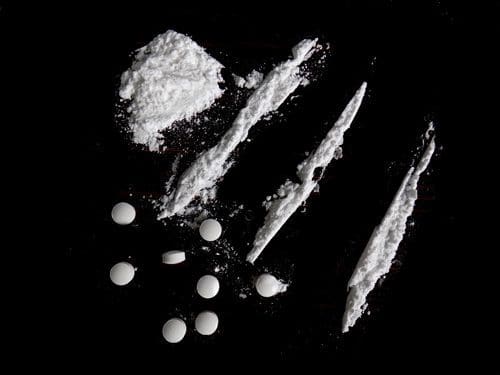A Potent Drug
According to the United States Drug Enforcement Administration (DEA), fentanyl is 80-100 times more potent than morphine and 50 times stronger than heroin. Originally developed as a skin patch for pain management of cancer patients, this potent synthetic opioid painkiller also has a high potential for abuse.
Fentanyl is sometimes sold mixed with heroin, cocaine, MDMA, or methamphetamine as a way to increase the drug’s potency. In most cases, the user does not know they are purchasing fentanyl. They believe they are buying heroin or another of the drugs mentioned. Using the mixture often results in accidental death from overdose.
What Is Fentanyl?
Under the United States Controlled Substances Act of 1970, fentanyl is a Schedule II narcotic. Drugs in this category are considered dangerous drugs. This means fentanyl has a high potential for abuse that could potentially lead to severe physical or psychological dependence.
How Does Fentanyl Work on the Body?
Fentanyl increases the levels of dopamine in the body’s central nervous system by binding to the body’s opioid receptors. When the levels of dopamine increase, a state of relaxation is produced and an overall feeling of euphoria is felt. The perception of suffering decreases and pain is relieved. It also depresses the cough reflex and the respiratory system.
The following are additional possible effects of fentanyl on the body:
- Drowsiness
- Dizziness
- Confusion
- Sedation
- Urinary retention
- Nausea and/or vomiting
- Constipation
- Dry mouth
How Is Fentanyl Administered?
Fentanyl comes in many different dosage forms. In the hospital, it is generally given as an IV drip or an IV injection. It can also be administered using a pump that is controlled by the patient. When pain medication is needed, the patient pushes a button and a dose is received through their IV.
Additional forms of fentanyl include:
- Oral lozenges – generally known as fentanyl “lollipops” (medication name – Actiq)
- Nasal spray (medication name – Lazanda)
- Sublingual dissolving tablets (medication name – Abstral)
- Injectable liquid (medication name – Fentanyl citrate)
- Transdermal patches (medication name – Duragesic)
- Dissolvable film strips or tablets (medication name – Fentora)
Illegally produced fentanyl is found in either a powder or counterfeit tablet form. It can be taken orally, snorted, smoked, or injected.
Street Names for Fentanyl
When fentanyl is sold on the street, it is known by many different names including Goodfellas, Apache, China Town, Tango and Cash, Friend, Drop Dead, Shine, and China Girl. Other popular street names for the drug include:
- Great Bear
- Dance Fever
- He-Man
- King Ivory
- Murder 8
- Jackpot
- Percopop
- TNT
- Serial Killer
The Dangers of Fentanyl
Fentanyl is an extremely powerful, addictive, and dangerous drug. Sudden death from an overdose related to fentanyl can occur from cardiovascular collapse or cardiac arrest. A person might go into respiratory arrest or experience severe respiratory depression. A severe anaphylactic reaction is another possibility.
There are numerous other dangers of fentanyl that are wide-ranging. Here are just a few.
- Just a very tiny amount of fentanyl can cause an overdose. In fact, the amount needed is so small that on the head of a penny you could fit at least 12 lethal doses.
- Inhaling fentanyl powder that is airborne can cause a reaction.
- An overdose can be caused just by touching the drug to bare skin.
- An oral formulation of fentanyl contains enough of the drug to cause death to a child.
- The difference between a dose of fentanyl that is therapeutic and one that is fatal is very small.
- Fentanyl is so potent that it often takes multiple doses of Narcan to effectively reverse an overdose.
Signs and Symptoms of an Overdose of Fentanyl
Accidental death can occur from an overdose of fentanyl from just one dose. This is especially true if the person taking it is not the person with the prescription or it is taken incorrectly.
Signs and symptoms of a fentanyl overdose include:
- Slow heartbeat
- Shallow or slow breathing
- Unresponsiveness
- Extreme sleepiness
- Difficulty talking or walking
- Clammy, cold skin
- Dizziness
- Feeling lightheaded or faint
- Confusion
Help for Substance Abuse or Addiction
There is no quick fix for drug or alcohol addiction, but help is available. If you or a loved one are suffering from a substance use disorder, speak to a professional staff member at Canyon Vista Recovery Center in Mesa, Arizona. They will answer your questions and help you take the steps you need to start your journey to a clean and sober life.





